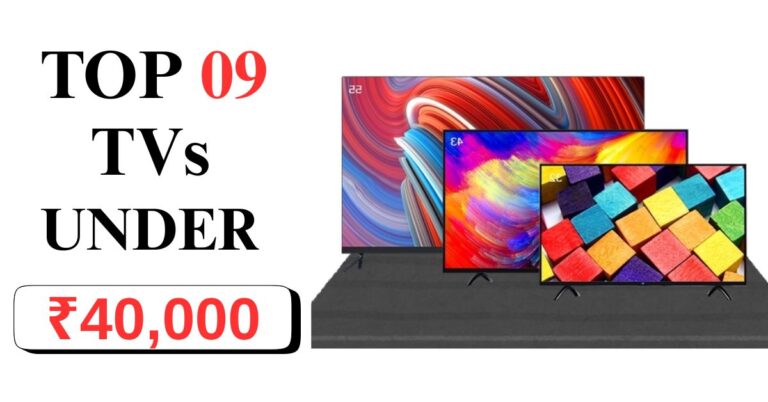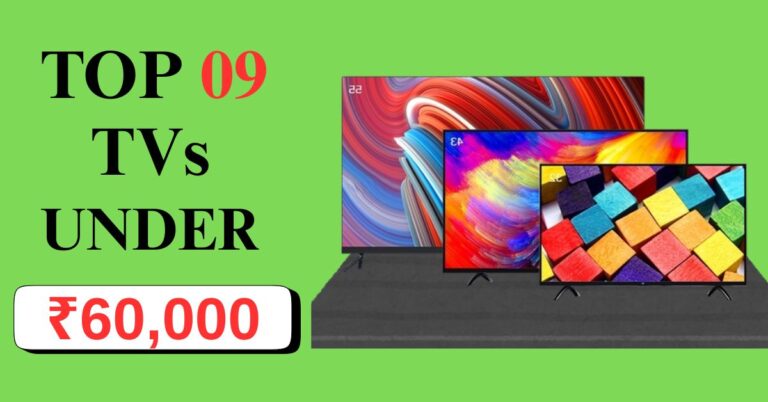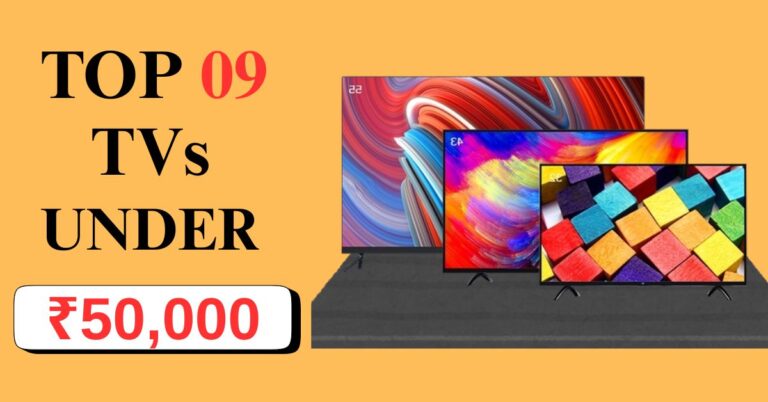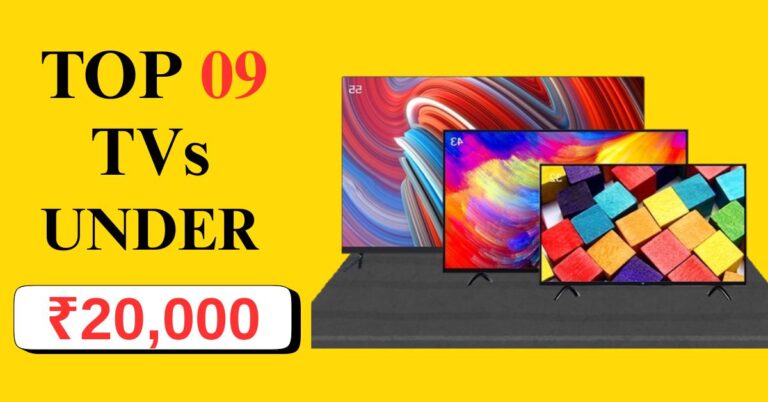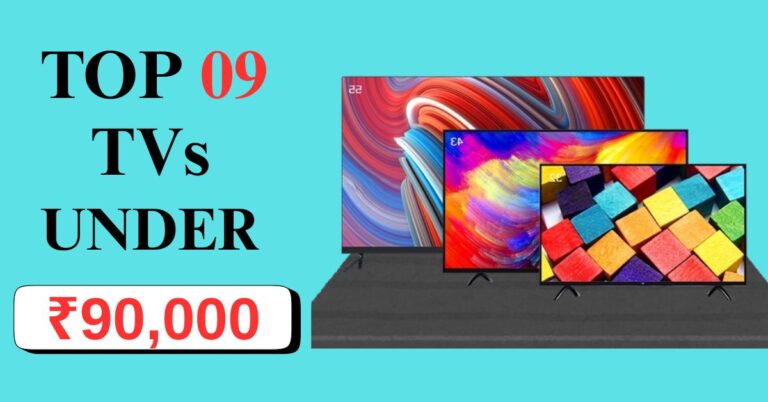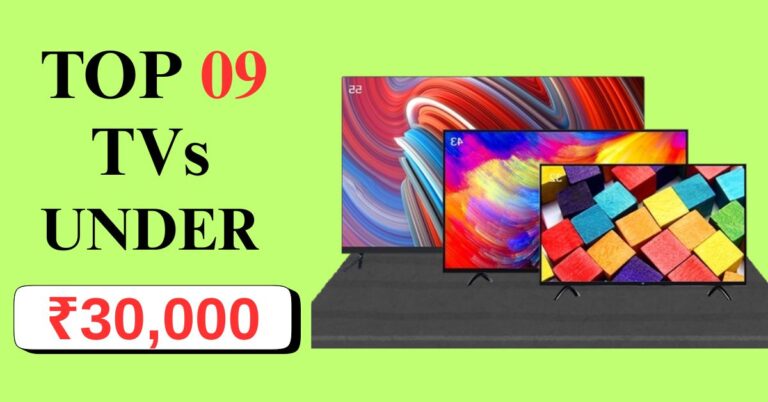The Ultimate TV Buying Guide: How to Choose the Perfect TV for Your Home
Buying a new TV is exciting but can feel confusing with so many choices out there. Whether you want a TV for watching movies, sports, gaming, or just everyday shows, this guide will help you pick the right one that fits your needs and budget.
TV Buying Guide 2025, 10 Things You Need to Know Before You Buy
Smartphones and laptops have enhanced our visual experiences like never before. But sometimes, you just want to enjoy your favorite show on a big screen without any annoying notifications. With so many types and features available, buying a TV for your home can be confusing.
Thanks to technology, even affordable TVs now offer great picture quality and performance. However, purchasing a TV can be daunting if you don’t know the technical terms and acronyms. This blog compiles all the essential information you need in one place to answer common questions about smart TVs. Whether you want simple shopping advice or want to understand which features matter, consider this your easy and effective smart TV buying guide
Factors to Consider Before Buying a TV
Buying a TV isn’t as simple as it seems. With so many models and options on the market, picking one that fits your needs and budget can quickly become overwhelming. Here are the key factors to keep in mind when you’re planning to buy the best smart TV in India.
- Display Type
The three most common types of TV displays you can buy are LED, OLED, and QLED. When choosing the display type, always consider your budget and your priorities. If you are looking for the best possible picture quality, go for an OLED TV. If you are on a budget, an LED TV is the best choice you can make. And if you want a good balance of picture quality and price, a QLED TV is the perfect choice.
- Screen Size
The screen size of your TV will depend on the size of your room and how far away you will be sitting from it. As a general rule of thumb, the total pixel count or resolution should increase in proportion to the screen size. The better the resolution, the more you see the image instead of pixels.
- Refresh Rate
The refresh rate of a TV refers to the number of times the image on the screen is updated per second. A higher refresh rate will result in a smoother picture, which is ideal for fast-paced content such as sports and video games. If you are primarily going to use your TV for watching movies and TV shows, a refresh rate of 60 Hz is sufficient. However, if you are thinking of buying the TV for gaming or watching sports, you should choose a higher refresh rate, such as 120 Hz or 240 Hz.
- Screen Resolution
The screen resolution of a TV refers to the number of pixels it has. The higher the resolution, the sharper the image will be. 4K UHD (3840×2160) and 8K UHD (7680×4320) are the most common resolutions that you can find. 4K TVs provide truly amazing clarity, but if you want the most immersive experience, 8K TVs will be the best choice.
- Connectivity Options
Most modern electronics have an HDMI connector for connecting to a TV, allowing for the best quality video and audio. If necessary, you can connect using a composite or component port. Look for a TV with at least four HDMI connections if you intend to connect predominantly high-definition media. This will be useful as you won’t need to swap out wires while switching devices.
- Sound
Sound quality is essential for a great TV experience. There are several sound options available, including mono, stereo, Dolby, and 5.1 sound. Mono is the most basic format, with both speakers producing the same sound. Stereo separates the sound between the right and left speakers for a more immersive experience. Dolby Digital is the preferred multi-channel audio standard for digital cable. Choose between Dolby and stereo sound for the finest home audio quality.
Top 10 Tips for Choosing a Smart TV
- The Right Resolution
For sharper and more detailed images, the higher resolution screens are the choice that you have to make. The most common screen resolutions that you can find are 1080p (full HD), 4K Ultra HD (UHD), and 8K. If you wish to buy a TV with the best possible picture quality, buy 8K TVs.
- Efficient Smart Features
Smart TVs have built-in internet connectivity, allowing you to stream movies, TV shows, and music from popular streaming apps like Netflix, Hulu, and Amazon Prime Video. In addition, these TVs have voice control, gaming apps, and online browsing capabilities. If you want to stream material straight to your TV without using a streaming device, the smart TV is the best option available.
- Appropriate Screen Size
The right screen size of your TV depends on the size of the room where you will be watching it and how far away you will be sitting from the TV. The screen sizes on televisions are measured diagonally.
- The Accurate Refresh Rate
The refresh rate is the number of times per second that the image on the screen is updated. TVs with higher refresh rates will produce a smoother and more fluid motion of images. If you wish to watch a lot of fast-paced content like action movies or sports, choose a TV with a refresh rate of 120 Hz or higher.
- The Best Screen Technology
LED, OLED and QLED are the three main panel types of TV screen technologies. If you want the most common and affordable type of TV, LED TVs are a good choice that you can make. OLED TVs offer the best picture quality, with perfect black and infinite contrast. QLED TVs are a good middle ground between LED and OLED TVs, offering good picture quality at a more affordable price.
- Check the Viewing Angle before Buying
If you are planning on watching TV from different angles in the room or having multiple people watch the TV at the same time, it is important to choose a TV with a wide viewing angle. OLED TVs have the widest viewing angles, followed by QLED TVs and LED TVs.
- HDR-Feature for Improved Picture Quality
HDR (High Dynamic Range) is a technology that improves picture quality by providing a wider range of colours and brightness. They can provide more realistic and immersive images. There are two HDR formats: HDR10 and Dolby Vision. Most HDR TVs support HDR10, but some also support Dolby Vision.
- Choose a Reputed TV Brand
There are many TV brands on the market, so it is important to choose one with a good reputation for quality and reliability. Some of the most popular TV brands are Samsung, LG, Sony, TCL, Lloyd, Haier, and MI.
- Experience Fluid Motion for Fast-Paced Content
TVs can experience two types of motion issues: judder and blur. Look for both, ideally including 60Hz (console game) content, 50Hz (broadcast) content, and 24Hz (Blu-rays, UHD Blu-rays). The majority of TVs have motion processing built in to help with judder and blur. Always remember that different TVs have varying degrees of motion processing, so experiment with the settings to gain a more thorough understanding of the motion performance of your TV.
- Include Warranties in the Budget
Set a budget before you start shopping and compare prices from different retailers. Be sure to also factor in the cost of warranty, which can protect your investment in case of any problems.
A List of Popular Smart TVs and Their Prices
Wrapping Up
Choosing the right TV involves balancing your budget, room size, and desired features. With so many options available, understanding key factors like screen size, resolution, display technology, and smart features will help you make an informed decision. Whether you want a TV for casual viewing, gaming, or home theater experiences, the perfect TV is within reach. Use this guide to confidently pick a TV that will bring joy and great entertainment to your home for years to come.
Linkedin,
I’m Nirmal, a passionate digital marketer focused on SEO, content, and performance.
Driven by data, creativity, and a love for digital trends.
— Nirmal P, Digital Growth Enthusiast

